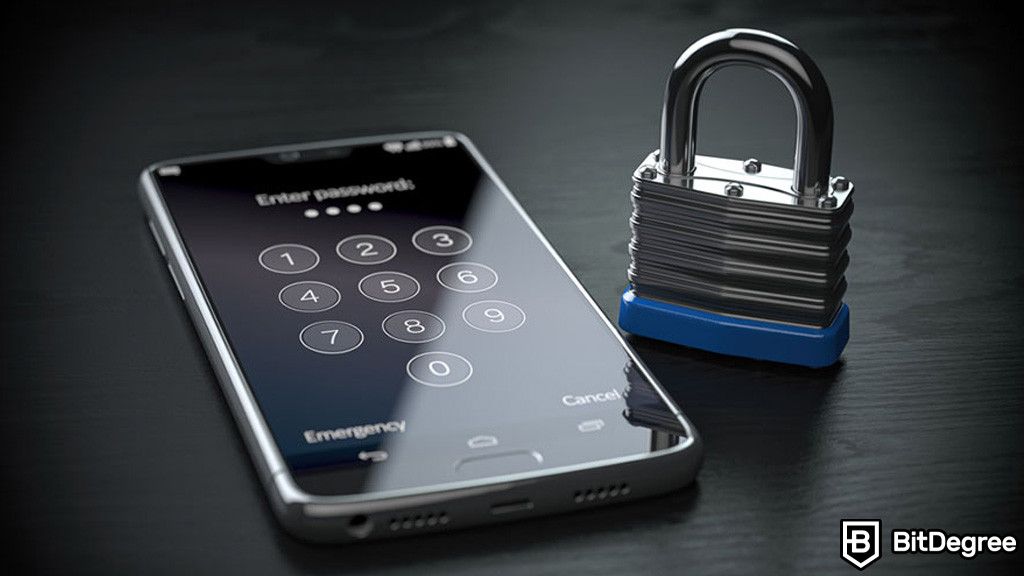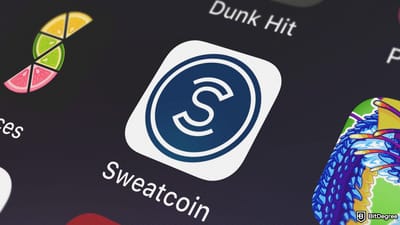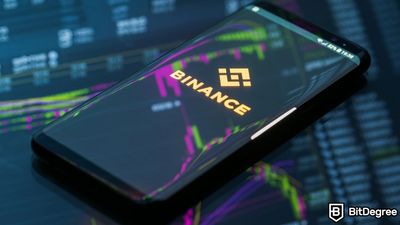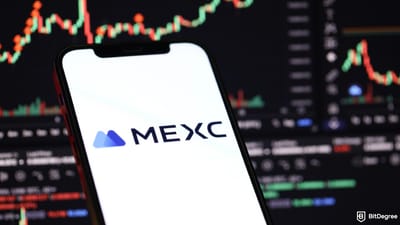Key Takeaways
- A soft token is a type of security measure in the form of software installed on your device.
- One of the main benefits of soft tokens is convenience, as they allow you to access and manage your assets practically anywhere.
- Soft tokens are a big part of our current crypto ecosystem since most crypto-related products utilize them.
Stop overpaying - start transferring money with Ogvio. Sign up, invite friends & grab Rewards now! 🎁
Ever wondered how you manage your cryptocurrency holdings on platforms like Binance, Kraken, or ByBit? These popular exchanges offer various ways to secure your data and investment. One increasingly popular method involves using a soft token. But, what exactly is a soft token?
In this comprehensive guide, I’ll explore the ins and outs of soft tokens in the crypto world. We'll delve into the role of soft tokens in the crypto ecosystem, their benefits, and how they stack up against other security measures. By the end of this article, you'll have a clear understanding of why soft tokens are essential for anyone involved in cryptocurrency. Without further ado, let’s get into it!

Did you know?
Subscribe - We publish new crypto explainer videos every week!
Crypto Token VS Coin (Animated Explainer & Examples)


Table of Contents
- 1. What is a Soft Token?
- 1.1. How Soft Tokens Work
- 1.2. Advantages of Soft Tokens
- 1.3. Common Use Cases
- 2. The Role of Soft Tokens in the Crypto Ecosystem
- 2.1. Enhancing Security
- 2.2. Facilitating Transactions
- 2.3. Streamlining User Experience
- 2.4. Supporting Multiple Platforms
- 3. Security Considerations with Soft Tokens
- 3.1. Potential Vulnerabilities
- 3.2. Mitigating Risks
- 3.3. Backup and Recovery
- 3.4. Multi-Factor Authentication
- 3.5. Staying Informed
- 3.6. Disaster Recovery and Backups
- 4. Soft Tokens VS Other Security Measures
- 4.1. Soft Tokens VS Hardware Tokens
- 4.2. Soft Tokens VS Biometric Authentication
- 4.3. Soft Tokens VS 2FA
- 5. The Future of Soft Tokens in Crypto
- 5.1. Enhanced Biometric Integration
- 5.2. Blockchain-Based Soft Tokens
- 5.3. Cross-Platform Compatibility
- 5.4. Advanced Machine Learning Algorithms
- 5.5. Increased Adoption in Decentralized Finance
- 5.6. Future Prospects
- 6. Conclusion
What is a Soft Token?
So, what is a soft token? In the simplest terms, a soft token is a type of software token used for enhancing security. Unlike hard tokens, which are physical devices like USB drives, soft tokens are entirely digital and exist as apps on your smartphone or computer. These tokens generate temporary, one-time passwords (OTPs) or authentication codes that are used to verify your identity when accessing your cryptocurrency accounts or making transactions.
Latest Deal Active Right Now:How Soft Tokens Work
Soft tokens function by creating a unique code each time you need to authenticate your identity. This code is typically time-sensitive, meaning it expires after a short period, usually 30 to 60 seconds. This adds a layer of security because even if someone intercepts the code, it will be useless after it expires.
For instance, when you log into your Binance account, you may be prompted to enter a code from your soft token app. The app will generate a fresh code, which you then input to complete the login process. This method ensures that only someone with access to your soft token can access your account.
Advantages of Soft Tokens
One of the biggest advantages of using a software token is convenience. You don't need to carry around any extra hardware. Your phone, which you likely have with you at all times, serves as your security device. This makes managing and securing your crypto holdings incredibly convenient.
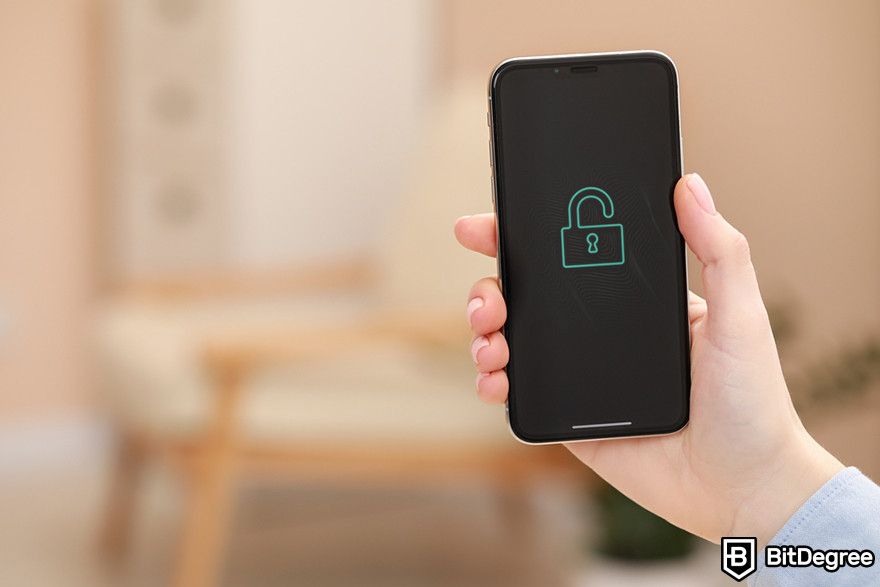
Moreover, software tokens are highly flexible. They can be integrated with various platforms and services, providing a seamless experience across different crypto exchanges and wallets. Whether you’re using a crypto exchange account, a software token can easily be set up to enhance its security.
Common Use Cases
Now, let’s look at some soft token examples. Most popular crypto exchanges use soft tokens for two-factor authentication (2FA). Whenever you log in or perform a transaction, you’ll need to enter a code from your soft token app, adding an extra layer of security.
In addition to exchanges, many crypto wallets also support soft tokens. This means that to access your wallet or make a transaction, you’ll need to use your software token to authenticate the action. This helps protect your assets from unauthorized access, ensuring that your crypto remains secure.
So, what is a soft token? It’s a powerful, digital solution for securing your cryptocurrency assets, providing the perfect blend of security and convenience. As you delve deeper into the world of crypto, understanding and utilizing soft tokens can significantly enhance your security and ease of use.
The Role of Soft Tokens in the Crypto Ecosystem
The crypto ecosystem is a complex and dynamic environment, constantly evolving to meet the demands of security, usability, and scalability. Within this ecosystem, soft tokens play a crucial role in ensuring that transactions and account accesses remain secure. But what exactly is the role of soft tokens in this space, and how do they contribute to the overall functionality of the crypto world? Let’s delve into this in more detail.
Enhancing Security
First and foremost, the primary role of soft tokens in the crypto ecosystem is to enhance security. Given the decentralized and often anonymous nature of cryptocurrencies, robust security measures are essential. Soft tokens, as a type of software token, provide a highly effective layer of security by generating OTPs or authentication codes that are used during the login process or when authorizing transactions.
These tokens work in conjunction with the underlying blockchain technology to ensure that even if someone gains access to your account credentials, they won’t be able to perform any actions without the current code generated by your soft token app. This significantly reduces the risk of unauthorized access and makes it much harder for malicious actors to compromise your accounts.

Did you know?
Subscribe - We publish new crypto explainer videos every week!
Bullish vs Bearish Markets: How to Predict it? (Animated)


Facilitating Transactions
One of the standout features of the crypto ecosystem is its ability to facilitate fast and secure transactions across the globe. Soft tokens play a pivotal role in this process by ensuring that each transaction is authenticated and secure. When you send or receive cryptocurrency, you’re often required to verify the transaction with a code from your software token. This not only confirms your identity but also ensures that the transaction is legitimate.
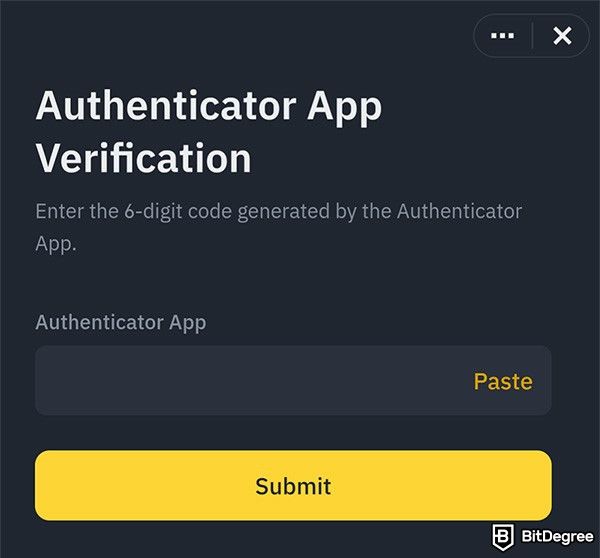
For example, if you’re using an exchange like Kraken to send Bitcoin to a friend, you’ll need to enter a code from your soft token app to authorize the transaction. This added step, while seemingly small, provides an extra layer of security that helps prevent fraud and unauthorized transactions.
Streamlining User Experience
While security is paramount, the user experience in the crypto ecosystem also needs to be seamless and efficient. Soft tokens contribute significantly to this by providing a user-friendly method of authentication that doesn’t require additional hardware. Unlike hardware tokens, which can be cumbersome and inconvenient, soft tokens are integrated directly into devices you already own, such as your smartphone.
This integration means you can easily manage your crypto accounts and perform transactions on the go without needing to carry around a separate device. For instance, if you’re out and about and need to quickly check your account balance or make a trade, you can do so directly from your phone using your soft token app. This convenience is a major benefit, especially for those who are actively engaged in trading or frequently move their assets.
Supporting Multiple Platforms
Another critical role that soft tokens play in the crypto ecosystem is their compatibility with multiple platforms. Whether you’re using a wallet like Binance Web3 Wallet, or any other service that supports 2FA, soft tokens can be easily integrated to enhance security. This interoperability ensures that you have a consistent and secure experience across all the different services you use.
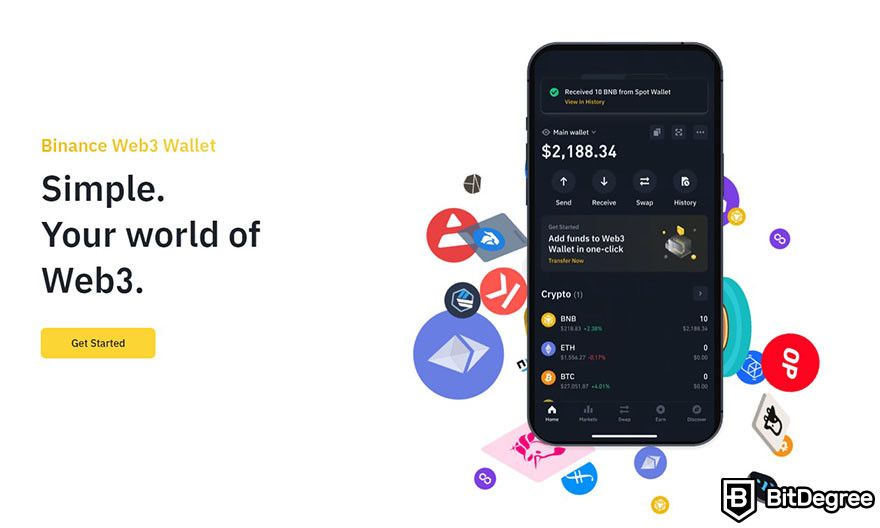
This means that regardless of which platform you’re accessing, you can rely on your soft token to provide the necessary authentication, streamlining your security setup without adding complexity.
Security Considerations with Soft Tokens
We've explored the convenience and versatility of soft tokens, but let's face it, security is paramount when dealing with crypto. So, what are the potential risks associated with soft tokens, and how can you keep your crypto holdings safe?
Potential Vulnerabilities
While soft tokens are generally secure, they are not immune to vulnerabilities. One potential risk is the device on which the software token is installed. If your smartphone or computer is compromised by malware, it could jeopardize the security of your soft tokens. For instance, keylogging malware could potentially capture the OTPs generated by your software token app, allowing unauthorized access to your accounts.

Another vulnerability comes from phishing attacks. Cybercriminals often create fake websites or emails that mimic legitimate crypto platforms. If you inadvertently provide your login details on a phishing site, the attacker could gain access to your account. While they would still need the OTP from your soft token, sophisticated phishing attacks could also trick you into revealing that information.
Mitigating Risks
Despite these potential risks, there are several strategies you can employ to mitigate them. Firstly, always ensure that your device is secure. Regularly update your operating system and apps, and use reputable antivirus software to protect against malware. Avoid downloading apps from unknown sources, as these could contain malicious code designed to steal your data.
When it comes to phishing, vigilance is key. Always double-check the URL of the website you're logging into, especially if you arrived there via an email link. Official websites for exchanges should be bookmarked, so you can access them directly rather than through links in emails or messages. If you receive an email that seems suspicious, contact the platform’s support team directly to verify its authenticity.
Backup and Recovery
One critical aspect of using soft tokens is having a backup plan. If you lose access to your device, you could potentially lose access to your soft token and, by extension, your crypto accounts. Most software token apps provide a backup option during the setup process. This usually involves saving a recovery code or secret key that you can use to restore your soft token on a new device.
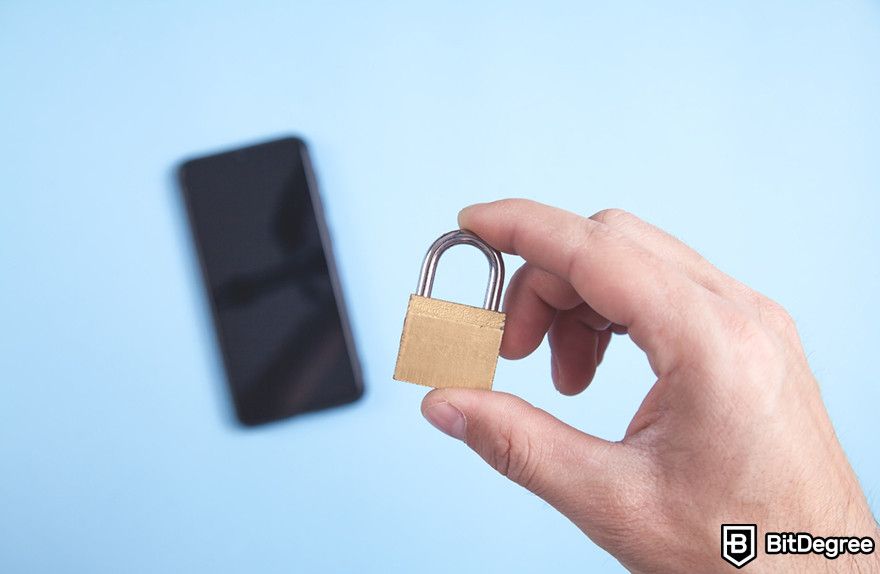
It's essential to store this recovery information securely, preferably in a physical format like writing it down and keeping it in a safe place. Avoid storing it digitally where it could be accessed by hackers. By having a reliable backup, you can quickly regain access to your accounts even if your device is lost or damaged.
Multi-Factor Authentication
While soft tokens are a form of 2FA, combining them with other security measures can further enhance your protection. For instance, enabling biometric authentication on your device, such as fingerprint or facial recognition, adds an additional layer of security. This means that even if someone has your device and your software token, they would still need your biometric data to access it.
Some platforms also support hardware-based security keys as an additional authentication method. These keys, used in conjunction with your software token, can provide a multi-layered defense against unauthorized access. Although this adds another step to the login process, the enhanced security can be well worth the effort.
Staying Informed
Finally, staying informed about the latest security threats and best practices is crucial. The crypto world is constantly evolving, and so are the tactics used by cybercriminals. Regularly check for updates from the platforms you use, read the latest crypto-related news, and participate in forums or communities that focus on crypto security. This proactive approach can help you stay ahead of potential threats and keep your assets secure.

In a nutshell, while soft tokens provide a robust layer of security for your crypto transactions, it’s essential to be aware of and address their potential vulnerabilities. By securing your device, being vigilant against phishing, having a backup plan, using multi-factor authentication, and staying informed, you can significantly enhance the security of your crypto assets. Soft tokens, when used correctly, are a powerful tool in safeguarding your investments in the dynamic world of cryptocurrency.
Disaster Recovery and Backups
Even with the best precautions, unforeseen events can happen. Here's why having a disaster recovery plan for your soft token is crucial:
- Seed phrase backup: Most soft tokens will provide you with a seed phrase, a series of random words that act as a master key to your crypto holdings. Even hardware products like Ledger Nano X, use this method to further secure their devices. This seed phrase is CRITICALLY important. Back it up securely offline, ideally in a physical copy stored in a safe location. Losing your seed phrase could mean losing access to your crypto forever.

- Cloud backups: Some soft token providers offer optional cloud backup features for your wallet data. While convenient, remember that cloud storage isn't foolproof. Evaluate the provider's security measures surrounding cloud backups before enabling this option.
By following these security best practices and choosing a reputable soft token provider, you can significantly enhance the security of your crypto holdings even within a software-based environment.
Soft Tokens VS Other Security Measures
So, you're sold on the convenience of soft tokens, but how do they stack up against other security measures commonly used in the crypto space? Let's break down the pros and cons of soft tokens in comparison to hardware tokens, biometric authentication, and 2FA.
Soft Tokens VS Hardware Tokens
When it comes to securing your crypto assets, both soft tokens and hard tokens offer unique advantages. Here’s a quick comparison to help you understand their differences:
- Convenience
- Soft tokens: Accessible directly from your smartphone or computer, making it easy to manage your crypto on the go. You don't need extra hardware, which simplifies the process.
- Hard tokens: Physical devices that you must carry with you. While they provide robust security, they can be inconvenient for frequent travelers or those who need quick access.
- Security
- Soft tokens: Rely on software-based OTPs, which are secure but can be vulnerable if your device is compromised. Keeping your device secure and using biometric authentication can mitigate these risks.
- Hard tokens: Offer high security as they are not connected to the internet. This makes them less vulnerable to hacking but requires you to keep the physical device safe.
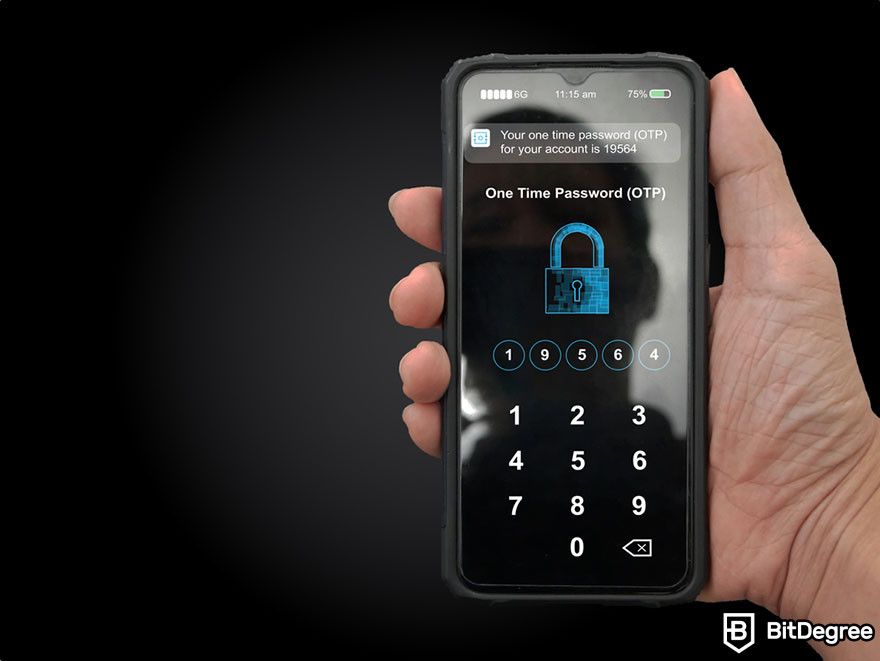
- Setup and Recovery
- Soft tokens: Easier to set up and usually offer recovery options via a secret key or backup code. This allows you to restore access if you lose your device.
- Hard tokens: Can be more complex to set up and require physical possession for recovery, adding an extra layer of security but also a potential hassle.
In summary, both software tokens and hard tokens have their place in crypto security. Soft tokens offer convenience and flexibility, while hard tokens provide robust offline security.
Soft Tokens VS Biometric Authentication
Understanding the differences between soft tokens and biometric authentications can help you choose the best security method for your crypto assets. Here's a brief comparison:
- Convenience
- Soft tokens: Easy to use and access via your smartphone or computer. They generate time-sensitive OTPs for authentication.
- Biometric authentications: Extremely convenient as they rely on unique biological traits like fingerprints or facial recognition, eliminating the need for remembering codes or carrying devices.
- Security
- Soft tokens: Provide a high level of security through OTPs, but their effectiveness can be compromised if your device is hacked.
- Biometric authentications: Offer strong security as biological traits are unique and difficult to replicate. However, they can be susceptible to advanced spoofing techniques.
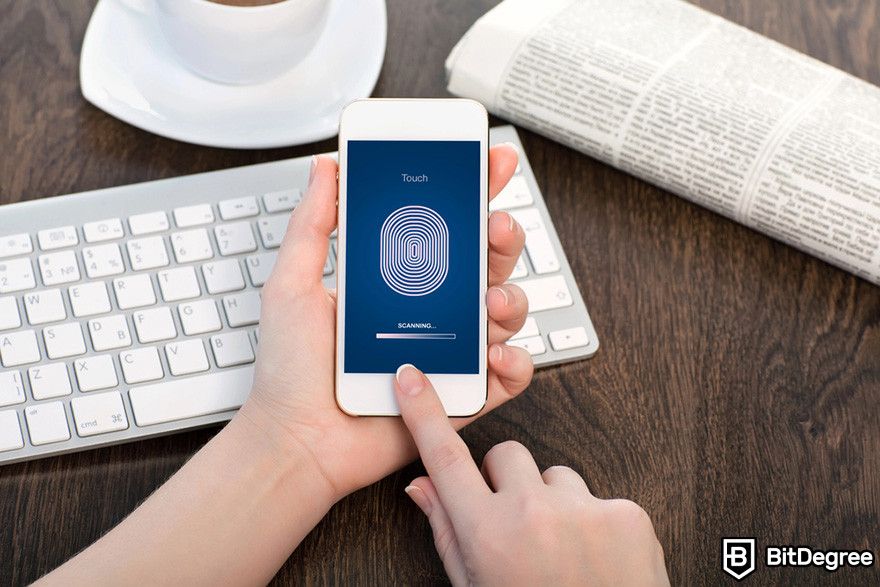
- Usage
- Soft tokens: Ideal for those who need flexibility and portability in managing their crypto transactions.
- Biometric authentications: Best for quick and seamless access without the need for additional devices or remembering codes, often used in conjunction with other security methods.
- Backup and Recovery:
- Soft tokens: Generally have recovery options through backup codes or secret keys, which can be stored securely.
- Biometric authentications: If biometric data fails (e.g., due to injury), alternative login methods (like PIN or password) are necessary for access.
Both of these methods offer unique benefits. Soft tokens provide flexibility and security through OTPs, while biometric authentications offer unmatched convenience and strong security based on personal traits.
Soft Tokens VS 2FA
Two-factor authentication is a security measure that requires a second verification step beyond your password to log in. So, how do soft tokens work with 2FA? Here’s how they compare:
- Usage
- Soft tokens: Provide the OTPs necessary for 2FA, making them an essential component of this security method.
- 2FA: Encompasses a broader range of methods, including SMS codes, email verifications, and hardware tokens, in addition to software tokens.
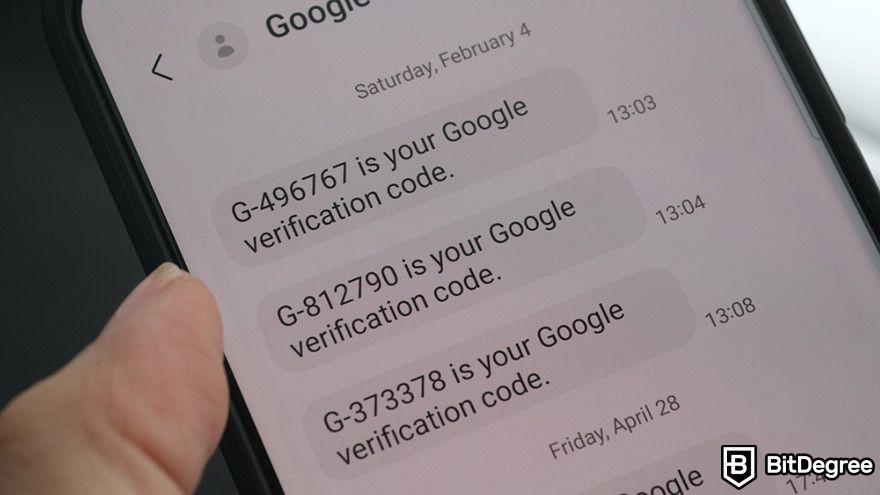
- Convenience:
- Soft tokens: Convenient and portable, as they are integrated into your smartphone or computer.
- 2FA: Can be slightly less convenient if it involves multiple steps, but it significantly boosts security.
- Security:
- Soft tokens: Offer high security through OTPs generated on your device. They reduce the risk of unauthorized access, especially when combined with secure devices.
- 2FA: Enhances security by requiring two independent authentication factors, making it much harder for attackers to gain access even if one factor is compromised.
To put this comparison simply, soft tokens are a type of software token used within the 2FA framework, providing essential security through OTPs. While soft tokens focus on generating secure codes, 2FA encompasses a broader range of authentication methods to ensure robust protection. So, if you were still confused about "What is a soft token?" and "How is it different from two-factor authentication?" this should answer your questions.
The Future of Soft Tokens in Crypto
The role of soft tokens in the crypto industry is poised for significant evolution as technology advances. Here are five potential future developments that could shape the use of soft tokens in the crypto world.
Enhanced Biometric Integration
One promising development is the deeper integration of biometrics with soft tokens. While biometric authentication is already in use, combining it with software tokens can create an even more secure environment. Imagine a scenario where your software token app requires a fingerprint or facial recognition to generate an OTP. This dual-layer security approach would make it exceedingly difficult for unauthorized users to access your crypto accounts, even if they have your device.

Blockchain-Based Soft Tokens
Another exciting development is the potential use of blockchain technology to enhance the security and functionality of soft tokens. Blockchain-based soft tokens could leverage the decentralized and immutable nature of blockchain to store and manage authentication data. This would not only enhance security but also ensure that your software token information is resistant to tampering and fraud. By decentralizing the storage of authentication data, the risk of single points of failure and centralized attacks could be significantly reduced.
Cross-Platform Compatibility
As the crypto ecosystem grows, so does the need for seamless integration across various platforms. Future soft tokens could be designed to work effortlessly across multiple crypto exchanges, wallets, and DeFi applications. This cross-platform compatibility would provide users with a unified authentication method, making it easier to manage their crypto assets across different services. For instance, a single software token app could generate OTPs for Binance, Kraken, or ByBit, simplifying the user experience while maintaining high security.
Advanced Machine Learning Algorithms
Machine learning and artificial intelligence (AI) are set to play a crucial role in the future of soft tokens. By incorporating advanced algorithms, software token apps could learn from user behavior and detect anomalies that may indicate fraudulent activities. For example, if your software token app notices an unusual login attempt from a different location or device, it could prompt additional security checks or alert you immediately. This proactive approach to security would help prevent unauthorized access before it even happens.

Increased Adoption in Decentralized Finance
The DeFi sector is rapidly expanding, and with it, the need for robust security measures. Soft tokens are likely to see increased adoption in DeFi platforms, providing a reliable method of authentication for various financial operations. As DeFi continues to attract more users and higher transaction volumes, the role of soft tokens in securing these transactions will become even more critical. Enhanced features such as multi-signature capabilities, where multiple software token-generated OTPs are required for high-value transactions, could further bolster security in the DeFi space.

- Secure and reliable
- Accepts fiat currencies
- Lots of trading options
- Reputable exchange
- Accepts fiat currencies
- Offers various trading options

- Huge trading variety
- Regulation-compliant around the globe
- Fair trading fees
- Beginner-friendly
- A wide array of features
- Vast number of different crypto coins & tokens

- Beginner-friendly
- Secure
- Decent trading and withdrawal fees
- Crypto.com Visa Card
- Automated tools & bots
- Ecosystem synergy with CRO
Future Prospects
As the crypto industry continues to evolve, so will the technologies that secure it. Soft tokens, being a crucial component of crypto security, are set to benefit from ongoing advancements in various fields. Enhanced biometric integration, blockchain-based solutions, cross-platform compatibility, advanced machine learning algorithms, and increased adoption in DeFi are just a few of the potential developments that could shape the future of soft tokens.
The future of soft tokens in the crypto industry is bright and full of potential. These developments promise to enhance the security, convenience, and functionality of software tokens, making them an even more integral part of the crypto ecosystem. As the industry continues to grow and evolve, staying informed about "What is a soft token?" and the latest advancements will be crucial for anyone looking to protect their digital assets effectively.
Conclusion
Soft tokens play a crucial role in enhancing security and convenience in the digital space, including the crypto. By now, you should have a clear understanding of "What is a soft token?" and how they function as software tokens to protect your digital assets. Exchanges like Binance, Kraken, or ByBit utilize soft tokens to secure transactions and user accounts.
The comparison with hard tokens, biometric authentications, and 2FA highlights the unique advantages of soft tokens. As the crypto ecosystem grows, the future developments in soft tokens, such as improved biometric integration, advanced MFA, and decentralized identity management, promise even greater security and usability. Soft token examples show how this technology continues to innovate, adapting to new challenges and opportunities.
By leveraging the strengths of soft tokens, the crypto community can look forward to a more secure and user-friendly experience. Whether you are a seasoned crypto investor or just getting started, understanding the importance and potential of soft tokens will help you navigate this dynamic landscape with confidence.
The content published on this website is not aimed to give any kind of financial, investment, trading, or any other form of advice. BitDegree.org does not endorse or suggest you to buy, sell or hold any kind of cryptocurrency. Before making financial investment decisions, do consult your financial advisor.
